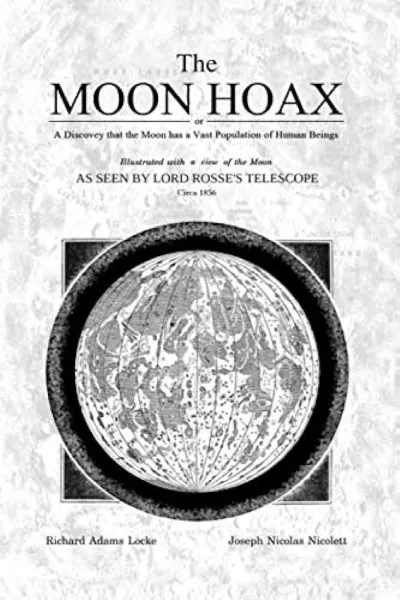
The Moon Hoax
'The Moon Hoax' Summary
"The Moon Hoax" by Richard Adams Locke is a captivating work of fiction that was published as a series of articles in 1835 in the New York Sun, one of the prominent newspapers of that time. The story is presented in a journalistic manner, which was unique for the era.
The narrative begins with a startling announcement - that the famous astronomer Sir John Herschel, using a cutting-edge telescope, had discovered life on the moon. Locke crafts a detailed account of this supposed discovery, describing fantastical creatures and complex civilizations on the lunar surface. The descriptions were so convincing and imaginative that many readers believed this to be a genuine scientific discovery.
The main characters in this 'hoax' are the fictitious figures described by Locke, based on the fabricated observations of Sir John Herschel. Locke portrays Herschel as a reputable and knowledgeable scientist, adding credibility to the tale. The central conflict is the astounding revelation of life on the moon, challenging common knowledge and inviting readers into a realm of imaginative possibilities.
Locke's writing style is authoritative and persuasive, mimicking the tone of scientific reporting. The unique element of this work lies in its intent - to entertain and to spark the imagination while fooling a portion of the public into believing it as true scientific discovery.
However, it's crucial to understand that "The Moon Hoax" is a fabrication meant to entertain and deceive readers. Despite its fictional nature, it remains a significant piece in the history of journalism, showcasing the power of media to shape public perception and the importance of critical thinking.
Book Details
Language
EnglishOriginal Language
EnglishPublished In
1835Authors

Richard Adams Locke
United Kingdom
Richard Adams Locke was an American journalist and writer who is best known for his Great Moon Hoax, a series of articles published in the New York Sun in 1835 that claimed that life had been discover...
Books by Richard Adams LockeDownload eBooks
Listen/Download Audiobook
- Select Speed
Related books
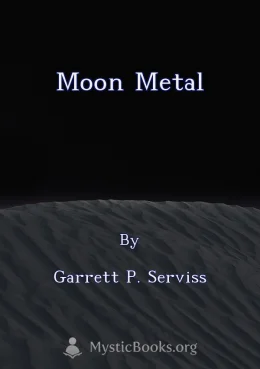
Moon Metal by Garrett P. Serviss
Garrett Putnam Serviss (1851-1929) was an astronomer, popularizer of astronomy, and early science fiction writer. Serviss showed a talent for explaini...

The Dominion in 1983 by Ralph Centennius
Step into a gripping tale of time travel and intrigue as "The Dominion in 1983" propels readers on a thrilling journey through the corridors of histor...
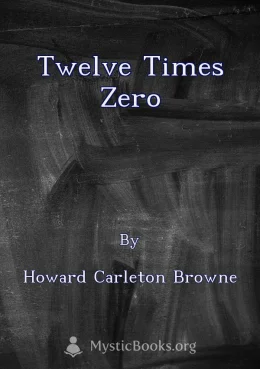
Twelve Times Zero by Howard Carleton Browne
In the midst of a love triangle and a shocking murder, a renowned astronomer makes a startling discovery that connects the events to a distant star sy...

Second Variety by Philip K. Dick
Set in a world where war between the Soviet Union and United Nations has reduced most of the world to a barren wasteland, the story concerns the disco...
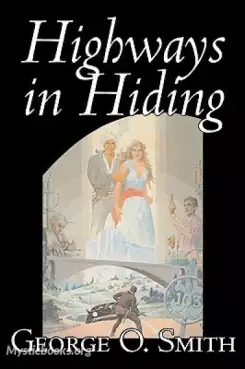
Highways in Hiding by George O. Smith
Highways in Hiding is a science fiction novel by American writer George O. Smith. It was published in 1956 by Gnome Press in an edition of 4,000 copie...

The Sky Woman by Charles B. Stilson
In a world where skies tell stories and destinies are shaped by the cosmos, "The Sky Woman" by Charles B. Stilson invites you on a remarkable journey...
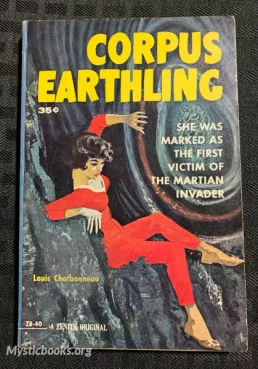
Corpus Earthling by Louis Charbonneau
It is an enthralling science fiction novel that takes readers on a thrilling intergalactic adventure. Written by the renowned author Louis Charbonneau...

Citadel of the Green Death by Robert Emmett McDowell
It tells the story of a team of scientists who are sent on a mission to explore the planet Alpha Centauri. Upon their arrival, they discover a strange...

Anacronópete by Enrique Gaspar y Rimbau
El Anacronópete, publicado en 1881, es una obra pionera en la exploración del concepto de viaje en el tiempo en la literatura. El autor, Enrique Gaspa...
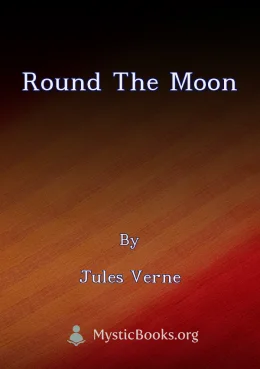
Round the Moon by Jules Verne
Around the Moon, Jules Verne's sequel to From the Earth to the Moon, is a science fiction novel continuing the trip to the moon which left the reader...
Reviews for The Moon Hoax
No reviews posted or approved, yet...